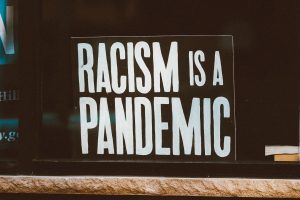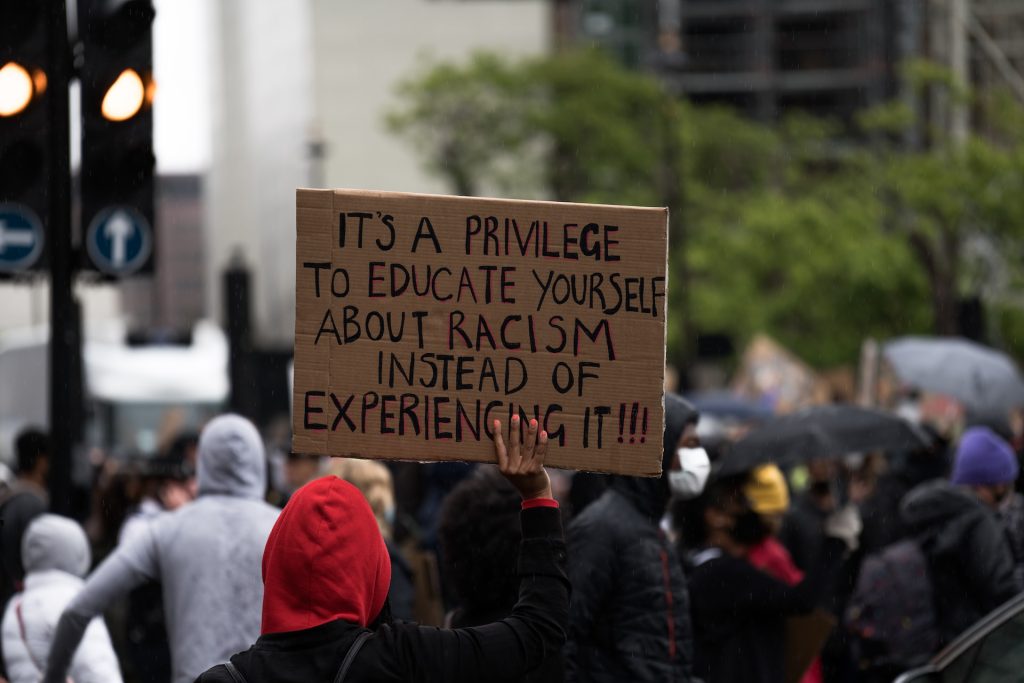These online and in-person meetings aim to gather input from Black communities, individuals, and organizations providing justice-related services. The goal is to create Canada's "Black Justice Strategy."
As a result, last August and this September, Black organizations led face-to-face consultations based on a "framework" for the Black justice strategy. This framework was created by an external steering group of nine leaders and experts from diverse backgrounds and experiences within Black communities across Canada. They possess expertise related to Canada's justice system.
Government Holding Roundtables
The issue of racism in Canada is more than just one race discriminating against another. It also happens within families. Either way, these cases shouldn't be swept under the rug. If you're the victim of discrimination, talk to racial discrimination lawyers or a Toronto family law firm.
Thankfully, the government is now taking a proactive stance on the issue. It intends to organize a series of roundtable discussions in the coming weeks, where individuals with firsthand experiences of hate, academics, and activists will come together.
The government has extended an invitation to everyone to participate in these consultations. However, specific mention was made of several communities, including Jewish, Muslims, Arabs, Latinx, Asians, Black, Metis, Inuit, First Nations, racialized, and faith-based communities, as well as newcomers to Canada, women, individuals with disabilities, and 2SLGBTQQIA+ individuals.
In 2022, there was a 12% rise in police-reported crimes driven by racial or ethnic hatred, while hate crimes directed explicitly towards the Black community surged by 28%, more than double the overall increase. These incidents comprised 43% of all police-reported hate crimes rooted in racial or ethnic hatred.
According to the 2022 National Justice Survey, Black respondents expressed less confidence in the Canadian criminal justice system's fairness than white respondents.
Purpose of Consultations
The government noted that these consultations will complement the substantial efforts of the Federal Anti-Racism Secretariat. The Secretariat has already reached out to thousands of Indigenous individuals and members of racialized and religious minority communities through various initiatives, including town hall meetings and summits.
These efforts have included national summits focused on addressing antisemitism and Islamophobia. Over 400 recommendations have been gathered, contributing to developing the National Action Plan on Combatting Hate and a refreshed government strategy for fighting racism.
A Look Into Government Efforts
Last February, the government formed a nine-person steering group to create its "Black Justice Strategy," aimed at tackling bias and discrimination in the criminal justice system. Their initiative intends to make it easier for Black individuals to enter the legal profession and judiciary.
During an Ottawa press conference on February 15th, three federal cabinet ministers introduced the nine experts from various fields. These experts will create a framework for consultations led by Black communities nationwide. They will collaborate with other specialists and community leaders to establish a comprehensive strategy.
This strategy aims to address systemic discrimination and anti-Black racism in Canada's criminal justice system while also proposing reforms and updates to ensure equal and just treatment under the law for all Canadians.
The Department of Justice emphasizes that this work will ensure the strategy reflects the diverse regional realities, experiences, and backgrounds of Black community members across Canada.
Steering Committee Members
The steering group comprises the following members: Vanessa Fells, Suzanne Taffot, Sandra Muchekeza, Moya Teklu, Mandela Kuet, Fernando Belton, Anthony Morgan, Zilla Jones, and Dr Akwasi Owusu-Bempah.
Dr. Akwasi Owusu-Bempah, a sociology professor at the University of Toronto, and Zilla Jones, a Winnipeg-based criminal defence and human rights lawyer, will collaborate to produce the steering group's final report. This report will include recommendations and a summary of the insights gathered during the nationwide consultations.
Marci Ien of the Women and Gender Equality and Youth Organization, Justice Minister David Lametti, and Minister of Housing and Diversity Inclusion Ahmed Hussen held a press conference in Ottawa.
Marci Ien, who represents Toronto Centre as an MP, shared that the alleged 2020 murder of George Floyd by Minneapolis police inspired her to get involved in politics. She emphasized that the incident was a wake-up call to the pervasive issue of systemic racism, which Black communities in Canada have long experienced.
Ien also highlighted that similar incidents have occurred in Canada, dispelling the notion that such problems are confined to other countries.
Repeated Cycles of Injustice
Ien noted that she observes recurring cycles of violence and injustice in her constituency, with families torn apart by the country's criminal justice system and young individuals becoming victims of challenging environments.
She shared the perspective of a local educator who emphasized the continuous trauma experienced by community members and children, stating that these issues persist without proper healing.
Ien pointed out that these challenges are reflected in statistics, revealing that Black individuals comprise only three per cent of Canada's population and comprise six per cent of all accused individuals.
Furthermore, they are more likely to receive long-term sentences of two years or more. She underscored the importance of addressing these issues, which necessitate difficult conversations in Black Canadian families nationwide, particularly with sons.
Hussen, a criminal defence, immigration, and refugee lawyer in Toronto before entering politics, emphasized that experiencing the abuses is distinct from genuinely comprehending and understanding them.
He recounted his experiences growing up in Toronto's Regent Park, where he was frequently stopped by the police while going about his business. During these encounters, they interrogated him about his destination, activities, and the contents of his pockets. He said they also asked him to show identification despite not doing anything wrong.
Addressing Important Questions
Jones, a criminal defence lawyer, addressed a reporter's question about the Black justice strategy. According to her, this strategy aims to increase the presence of Black judges on the bench and eliminate systemic racism for Black lawyers in the justice system.
She acknowledged that legal professionals, including herself, often discussed this topic. Jones shared her experiences, noting that she has felt barriers preventing her from becoming a judge, such as concerns about being perceived as too different or outspoken.
She highlighted the need to overcome a sense of not belonging, not being good enough, or being unprepared for a judgeship.
Jones expressed concerns about the intimidating nature of the appointment process for becoming a judge, emphasizing that it involves intensive scrutiny of an applicant's life, including past statements and actions.
She mentioned that once appointed as a judge, individuals might be restricted from actively participating in their communities or expressing their opinions publicly. Jones suggested that reaching out to lawyers of colour would be beneficial in streamlining the appointment process and making it less intimidating.
She also highlighted the need for increased diversity on the bench, as many clients do not see judges, lawyers, or prosecutors who look like them. This scenario contributes to feelings of alienation among legal professionals and clients. Jones expressed hope that the Black justice strategy would address these issues and work to improve representation in the legal system.
Past Initiatives
Diversity is a significant strength in Canada, but they acknowledge that discrimination and racism still harm their communities. The recent hate-motivated attack on a Muslim family in London, Ontario, highlights the urgent need to combat Islamophobia and all forms of racism.
The Government of Canada organized a virtual National Summit on Islamophobia to address this issue. Led by Minister Bardish Chagger, the summit provided a platform for Muslim communities to discuss ways to combat Islamophobia nationwide.
Prime Minister Justin Trudeau expressed solidarity with Canadian Muslims and pledged to fight Islamophobia and discrimination.
During the summit, federal ministers, Members of Parliament, and officials heard the experiences of Muslim Canadians. They discussed ways to implement national anti-racism initiatives to combat Islamophobia and hate-driven violence.
The government committed to:
- Engage with Muslim communities on the next Anti-Racism Action Plan
- Explore potential adjustments to programs like the Security Infrastructure Program (SIP) to combat hate
- Focus on digital literacy and countering misinformation
- Allocate resources to combat Islamophobia and hate
- Initiate a study to address concerns of Muslim-led charitable organizations
- Take a whole-of-government approach to address these priorities
Minister Chagger also announced support for eight projects under the Anti-Racism Action Program to remove barriers for Muslim communities.
Ministers Bill Blair and Mary Ng also announced funding for over 150 projects supporting communities at risk of hate-motivated crime through the Communities at Risk: Security Infrastructure Program (SIP).
The summit marks significant progress in addressing Islamophobia, and the government reaffirms its commitment to supporting Muslim communities, fighting discrimination, and creating a safer and more inclusive Canada for all.
Resilience BC Anti-Racism
The Resilience BC Anti-Racism Network is a comprehensive province-wide initiative to address and combat racism. It identifies and challenges racism and hate by connecting communities with information, support, and training.
This program operates through a "Hub and Spoke" model, where there is a central "hub" responsible for overseeing and coordinating the program and community-based "spokes" that facilitate service delivery. The critical functions of the Resilience BC Hub include:
- Connecting communities
- Enhancing the sharing of information and resources
- Organizing training and anti-racism efforts
On the other hand, the representatives collaborate with local members, identify local priorities, and carry out projects accordingly. This model ensures a coordinated, community-driven approach to addressing racism and promoting resilience.

What's next?
It is of utmost importance that Canada's Black Justice Strategy (the strategy) is firmly rooted in the rich tapestry of histories, backgrounds, and lived experiences of Black individuals across the country. The strategy's external Steering Group has recently crafted the framework, a comprehensive document intended to steer consultations and engagements.
In collaboration with experts and community leaders, the Steering Group will explore avenues for reforming and modernizing the criminal justice system to guarantee equal treatment for all individuals under the law.
Canada's Black Justice Strategy will begin in 2024 with the release of an Implementation Plan, which will provide a roadmap to address systemic discrimination in the criminal justice system, racism, and the overrepresentation of Black individuals as victims and in other roles.

















